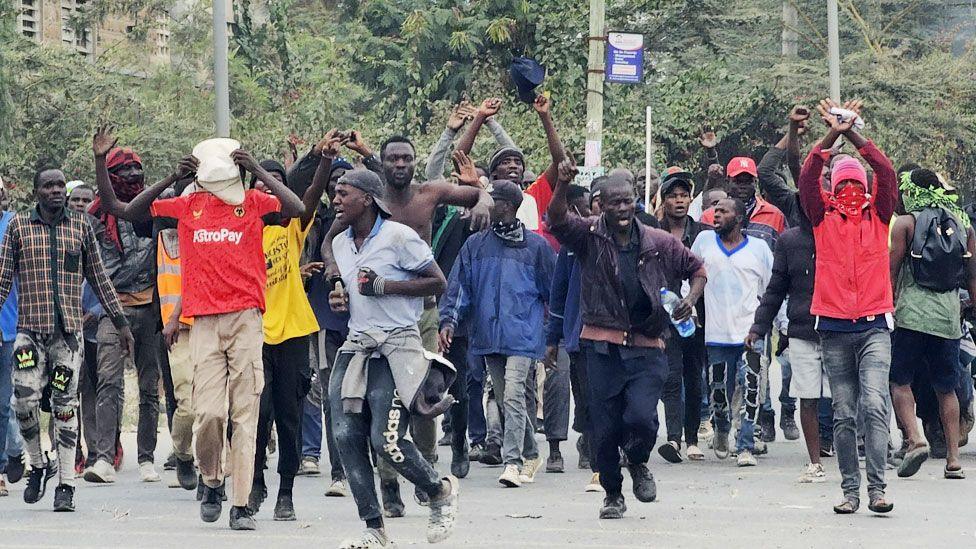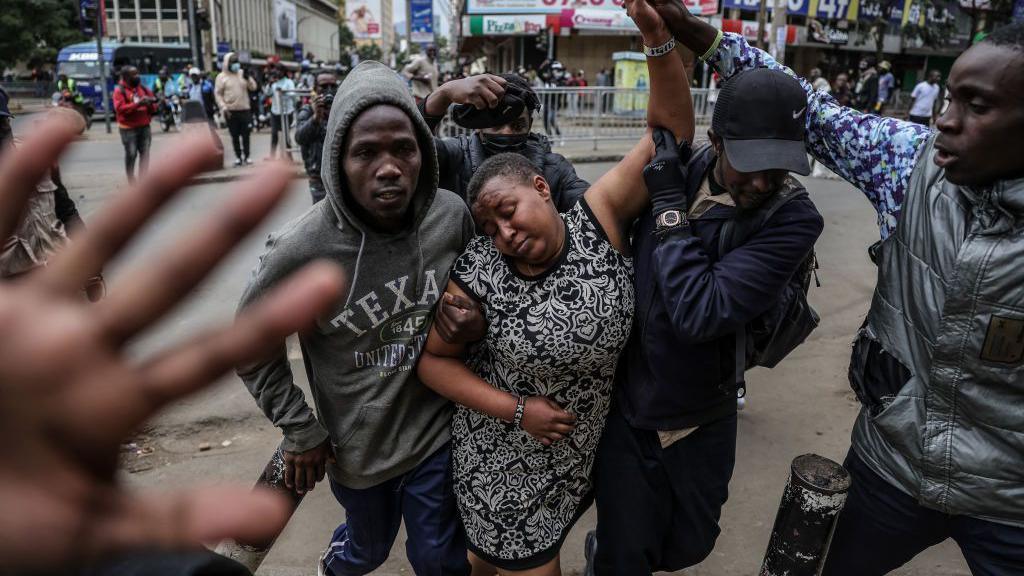Protester killed as crowds call for Kenya leader to go

The protesters chanted “Ruto must go” in Kitengela in southern Nairobi
- Published
Anti-government protesters in Kenya have returned to the streets stepping up demands for President William Ruto to resign, despite his recent concessions.
One man has been shot dead during a confrontation between protesters and security forces on the outskirts of the capital, a BBC reporter on the ground says.
In central Nairobi, shops have been closed as police fire tear gas to disperse hundreds of demonstrators.
The protests began last month against an unpopular tax bill, which has since been withdrawn by the president.
But they have continued, morphing in to broader anger over bad governance, corruption and police accountability over the deaths of dozens of demonstrators at recent rallies.
Last week, President Ruto called for a “dialogue” as he fired his entire cabinet and the head of the police force resigned.
The protest movement is largely co-ordinated online by young Kenyans, many of whom have rejected talks and are calling for Mr Ruto “to go”.
A crowd carried the body of the demonstrator killed on Tuesday in Kitengela, in southern Nairobi, to a nearby police station. The police force has not commented on the man’s death.
The protesters chanted “Ruto must go”, lit fires on the road and threw stones as they clashed with the police, a BBC reporter at the scene says.
Chaotic scenes were also witnessed in other parts of the country, including in Mombasa, Kisumu, Nakuru and Nyeri.
A reporter for Kenyan television station K24 has also been badly injured by a bullet whilst covering the protests in Nakuru. She was shot in the thigh and has been taken to hospital for treatment.
Kenya’s Daily Nation newspaper reports that there are protests in nearly half of the country’s 47 counties.
The tax bill was dropped after protesters broke into the parliament building complex on 25 June and set part of it ablaze.
Dozens of people have so far been killed since the demonstrations began, with the state-funded rights body putting the death toll at no less than 50 people and those injured at 413.
Earlier on Tuesday, the acting police chief said there was “credible intelligence” that “certain organised criminal groups” had planned “to infiltrate, disrupt and destabilise” the protests.
Douglas Kanja urged protesting Kenyans to be "peaceful and vigilant" and to "co-operate and co-ordinate with the police” to ensure their safety and “our collective security”.
On Monday, Mr Ruto accused the Ford Foundation of funding the protests.
In a statement, the US-based organisation denied the allegations, saying: "We do not fund or sponsor the recent protests against the finance bill."
Additional reporting by the BBC's Mercy Juma in Nairobi.

Businesses have been shut in central Nairobi where this woman was helped after tear gas was fired by police
You may also be interested in:

Go to BBCAfrica.com, external for more news from the African continent.
Follow us on Twitter @BBCAfrica, external, on Facebook at BBC Africa, external or on Instagram at bbcafrica, external